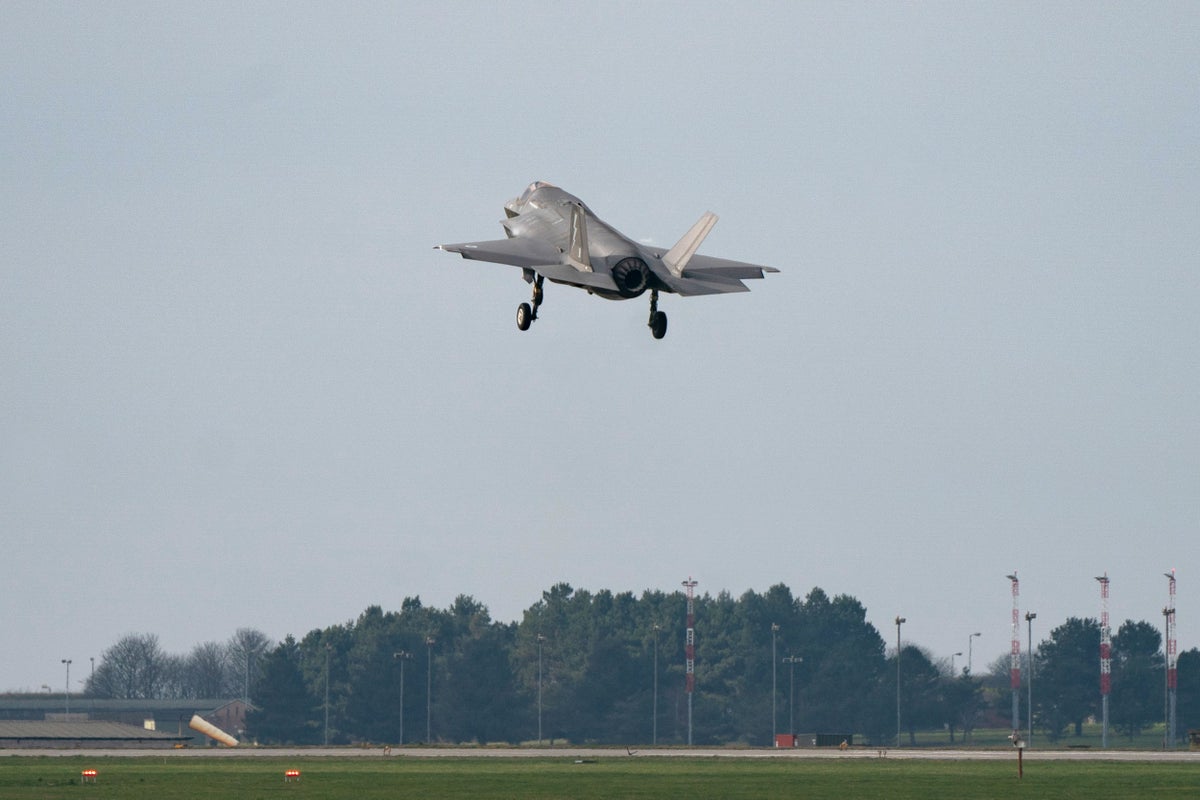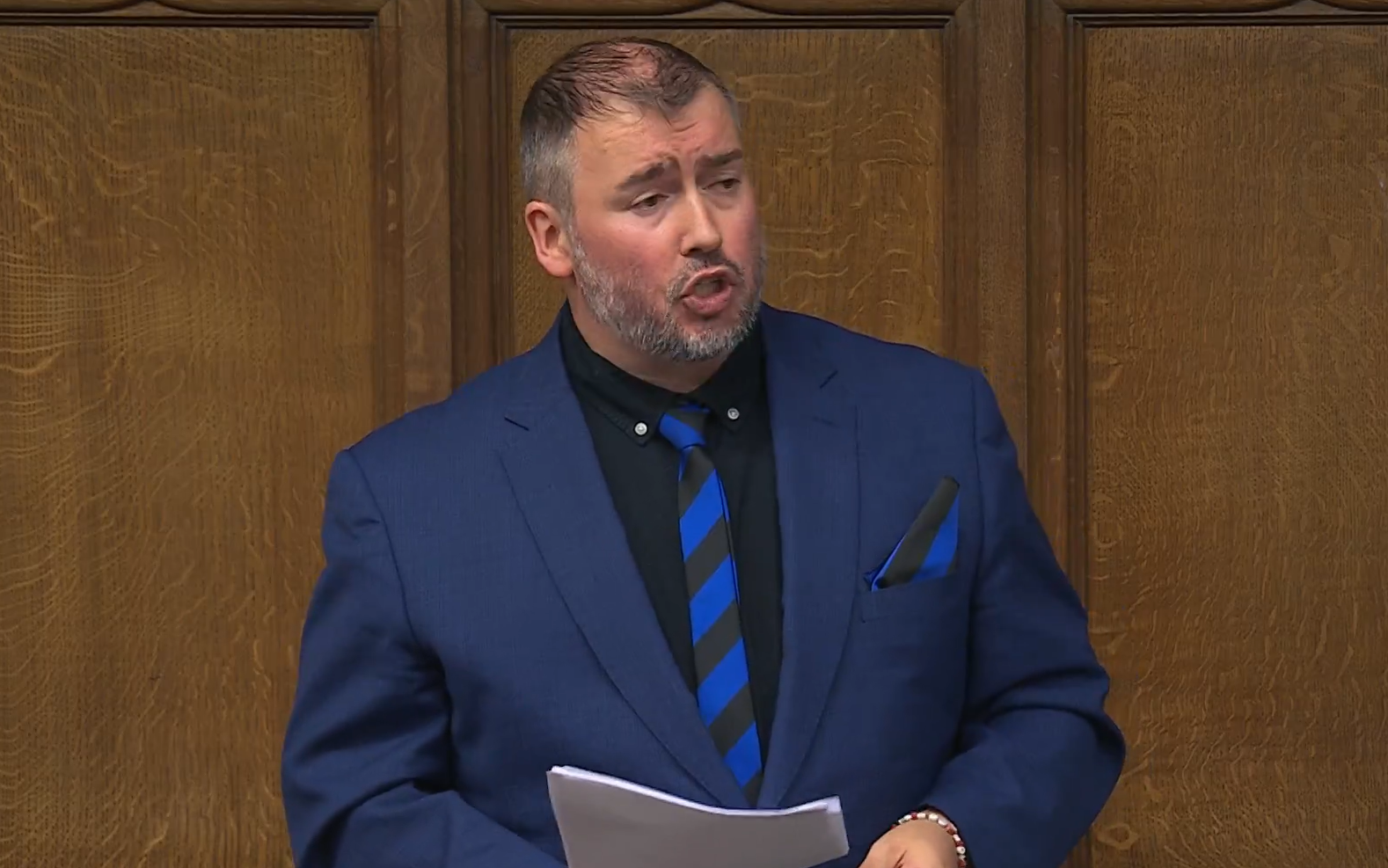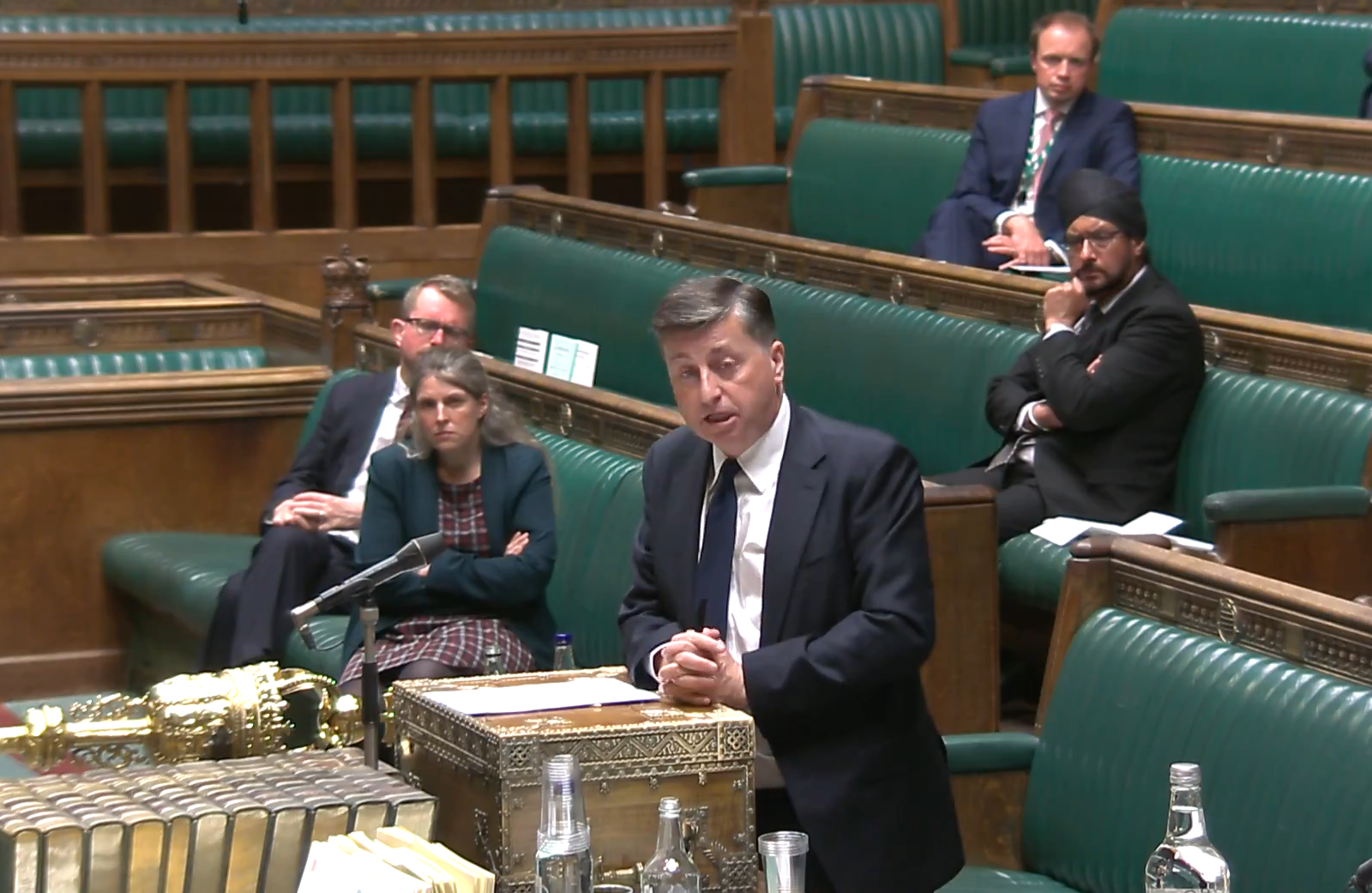
The UK Government must suspend all arms exports to Israel to remove the risk of British-made weapons being used to “ethnically cleanse” Palestinians, the Commons has heard.
Labour MP Steve Witherden said Gaza is “already a slaughterhouse” as he urged ministers to detail their “red line” which would halt further exports.
The MP for Montgomeryshire and Glyndwr added the “true scale” of UK military exports to Israel “remains unknown and unaccountable” before raising questions over the supply of “crucial” components to Israel connected to the F-35 fighter jet programme.
Business minister Douglas Alexander said the UK Government is not selling F-35 components “directly to the Israeli authorities” and the export licence prevents “direct shipments for Israel for use in Israel”.
MPs were told the UK’s exports of spare F-35 parts are part of a global supply network and exporters have “no sight and no control over the specific ultimate end users for their export”.
In September last year, Foreign Secretary David Lammy announced the suspension of around 30 arms sale licences to Israel amid concerns a “clear risk” exists that they could be used to breach international humanitarian law.
The Government said exports to the global F-35 programme would be excluded from the suspension decision, except where going directly to Israel, to avoid “prejudicing the entire” scheme.
Al-Haq, a Palestinian human rights organisation, which has brought a legal action against the Department for Business and Trade over its decisions, said the “carve-out” gives “rise to a significant risk of facilitating crime”.
Mr Witherden, leading an adjournment debate on arms and military cargo export controls and Israel, told the Commons: “The Foreign Secretary’s recent condemnation of Israel’s action as ‘monstrous’ was welcome but incomplete for my very same Government continues to facilitate such actions.
“We cannot have it both ways. We cannot condemn atrocity whilst simultaneously fuelling the machinery that enables it. We cannot claim to uphold international law while profiting from its breach.”
Mr Witherden raised several issues, including asking the Government to explain how it defines “defensive” weapons and what makes an F-35 component compatible with this definition.

He said: “It’s the Government’s position that the need to continue to supply F-35 components outweighs the risk of genocide and, if so, is there any circumstance that would lead to the UK stopping that supply?
“The Government has claimed that there are red lines that would trigger a halt to exports, but Gaza is already a slaughterhouse.
“Children are emaciated or dying of hunger. Hospitals have been intentionally destroyed. Israel’s leaders vow to wipe out Gaza and still the weapons flow.
“So finally I ask the minister where is our red line? I call on this Government to suspend all arms exports to Israel to ensure that no British-made weapons are used in Israel’s brutal plans to annexe, starve and ethnically cleanse the Palestinian population.
“The credibility of this House depends not just on what we condemn but on what we enable and history will remember we enabled too much.”
Mr Alexander began by condemning the “act of barbarism” by Hamas in Israel on October 7 2023, which killed around 1,200 people, before he warned that Israel’s operations have been “indefensible”, “disproportionate” and “counterproductive to any lasting peace settlement”.
The minister reiterated that the UK Government in September last year suspended arms exports licences for items to the Israel Defence Forces (IDF) that could be used in military operations in Gaza.
He said: “This measure is still in place and I’d like to reiterate that based on our current assessment of potential breaches of international humanitarian law, we are not licencing military equipment provided directly to the IDF that could be used for military operations in Gaza.
“It is right to acknowledge that our export licences granted in relation to Israel cover a wider remit than simply those items that may be used in Gaza.
“There are a relatively small number of licences for the IDF relating to equipment which we assess would not be used in the current conflict, including – for example – parts of air defence systems that defend Israel from acts such as the major aerial attack from Iran in April 2024.
“We also think it is right for us to continue providing military grade body armour used by non-governmental organisations and journalists and to provide parts to the supply chain which are ultimately re-exported back out of Israel to support the defence of our Nato allies.”

Mr Alexander also said: “Undermining the F-35 programme at this juncture would, in the view of the Government, disrupt international peace and security, Nato deterrence and European defence as a whole.
“In relation to components for the F-35 aircraft, our exporters provide these to a global spares pool and the common production line for new aircraft where they have no sight and no control over the specific ultimate end users for their export.
“Put plainly, it is not possible to suspend licencing of F-35 components for use by one F-35 nation without ceasing supply to the entire global F-35 programme. It was therefore judged necessary by the Government to exclude F-35 components from the scope of the suspension.
“But let me be very clear, the UK Government is not selling F-35 components directly to the Israeli authorities and the licence that allows the export of F-35 components was amended in September to specifically make clear that direct shipments for Israel for use in Israel are not permitted.”







